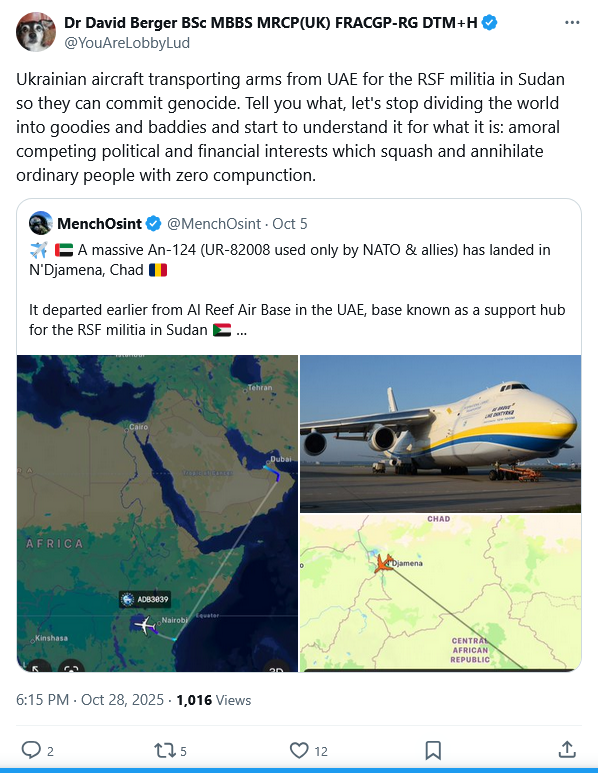https://news.un.org/en/story/2025/07/1165516
As conflict between rival militaries rages on, millions of people keep on being displaced.
While the UN and its partners continue to provide assistance to newly displaced families in North Darfur, “nearly 60 per cent of displaced families still lack adequate shelter support,” said Deputy Spokesman for the Secretary-General, Farhan Haq, at a daily press briefing on Monday.
In Abu Shouk camp in the state capital, El Fasher, displaced families are facing acute shortages of food and medicine, with local sources reporting four hunger-related deaths last week, as food insecurity continues to worsen across the entire country.
In North Darfur state notably, low cereal supply, poor harvests and a prolonged food deficit have severely affected food availability.
—-
Hundreds of thousands of civilians have died in the conflict.
The internationally recognised government of Sudan is the Transitional Sovereignty Council, which formed following the peace agreements of 2019.
The Rapid Support Forces, led by Hemedti, were not able to be integrated into the Sudanese Armed Forces, and in 2023 war broke out again.
The RSF is not particularly an ethnic based force, but Hemedti and the leadership derive from the “Janjaweed” forces that operate in Darfur (in the west of the country) and also in eastern Chad. They are primarily based on nomadic, Arabic-speaking camel-herding tribes. The Sudanese Armed Forces appear to be more “multi-ethnic”, including Arabs, Nubians, Bejas etc.
Earlier this year, actions of the RSF were declared to be genocide by the UN and US. The RSF is supported by Russia’s Wagner Group.
